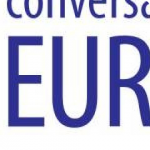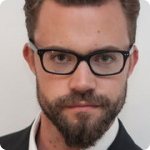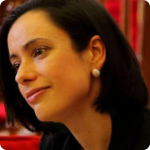Past Events

- Zoom
The Undergraduate Research Symposium is an annual event since 2002 designed to provide undergraduate students, from the University of Pittsburgh and other colleges and universities, with advanced research experiences and opportunities to develop presentation skills. The event is open to undergraduates from all majors and institutions who have written a research paper from a social science, humanities, or business perspective focusing on the study of Eastern, Western, or Central Europe, the European Union, Russia, or Central Eurasia. The 2021 Symposium will be online.

- Erik Grimmer-Solem (Wesleyan University)
- Zoom
Join us on April 29, 2021 when Erik Grimmer-Solem (Wesleyan University) will speak on his most recent book Learning Empire: Globalization and the German Quest for World Status, 1875-1919 (Cambridge UP, 2019). His book examines the process of German globalization---a process that began in the 1870s, well before Germany acquired a colonial empire or extensive overseas commercial interests and comes to a dramatic end with the outbreak of World War I. Structured around the figures of five influential economists who shaped the German political landscape, Learning Empire explores how their overseas experiences shaped public perceptions of the world and Germany's place in it. Looking closely at German worldwide entanglements, Learning Empire recasts how we interpret German imperialism, the origins of the First World War, and the rise of Nazism and invites reflection on the challenges of globalization in the current century. Erik Grimmer-Solem received his D.Phil. in economic and social history from Nuffield College, Oxford University and was a postdoctoral Harper Fellow at the University of Chicago before joining Wesleyan University’s History Department in 2002. He is the author of The Rise of Historical Economics and Social Reform in Germany (Oxford UP, 2003), Learning Empire: Globalization and the German Quest for World Status, 1875-1919 (Cambridge UP, 2019), and over thirty other publications. He has received awards from the Fritz Thyssen Foundation, German Academic Exchange Service (DAAD), and Leverhulme Trust, as well as two distinguished teaching prizes from Wesleyan University. His research on the Wehrmacht’s involvement in the Holocaust was discussed in the newsweekly Der Spiegel and debated in German parliament in 2014. He is currently finishing a book on this topic entitled Operation Barbarossa, the Crimes of the Wehrmacht, and the Politics of Remembrance in Contemporary Germany. #JMintheUS
- Zoom
Chair: John Lyon, Chair of the German Department, University of Pittsburgh Speakers: Schengen’ in fin de siècle Europe? Borderless Mobility in the Nineteenth Century - Jan Musekamp, DAAD Associate Professor of History, University of Pittsburgh Salvador de Madariaga and the ‘Solidarity of Being’: Limits and potential of an imagined ‘free movement of persons’ in Europe - Cristina Blanco Sío-López, Marie Skłodowska-Curie Senior Global Fellow, University of Pittsburgh / Ca' Foscari University of Venice. Organized by the European Studies Center and the Marie Sklodowska Curie Global Fellow in residence at the University of Pittsburgh, Cristina Blanco Sio-Lopez A Grubhub credit will be available to the first 20 people to register (only available within the U.S.)

Lecture Series / Brown Bag: JMintheUS:Developing Transatlantic Digital Trade: What are the obstacles
- Zoom
Thursday, April 22, 2021, 11:00 AM – 12:30 PM EST for this event on Digital Trade and Taxation held jointly by the Center for European Union, Transatlantic, and Trans-European Space Studies and the European Parliament Liaison Office, Washington DC. Andreas Schwab (Germany-EPP), Member of European Parliament, will open the event with a short keynote address. The subsequent panel, moderated by Besnik Pula (CEUTTSS), will will address the ways in which the rise of the digital economy has generated new questions over the governance of transatlantic trade. It features Benjamin Angel, European Commission, TAXUD; Francesco Duina, Bates College & Jean Monnet Network on Transatlantic Trade Politics; and Urška Petrovčič, of the Hudson Institute. Digital services, e-commerce, and other technology-intensive trade in services have become critical drivers of international trade in recent decades, with digital services assuming even greater importance to economies across the world in the Covid era. In addition to more familiar questions of data security and privacy, the digital economy is also presenting challenges to other areas of international economic relations and governance. National differences over taxation of digital services are also producing confrontation over competition for innovation and international market access by technology firms. Nowhere have these issues emerged more strongly than in trade and economic relations between the United States and the European Union. In 2017, US digital services exports amounted to over $400 billion, estimated to directly and indirectly support over 1.4 million American jobs. The EU is one of the top markets for US digital exports as well as the largest provider of digital services to the US economy. The great importance of transatlantic digital trade to the US and the EU has generated a number of critical policy issues in bilateral economic relations, such as questions of data privacy and security, the regulation of business cross-border activities of digital service providers, and the taxation of digital services. Questions of data regulation and taxation have spilled over into issues of competition and innovation and market access for firms on both sides of the Atlantic. #JMintheUS
Lecture Series / Brown Bag: JMintheUS: Success and Challenges for the EU External Cultural Relations
- Zoom
Success and Challenge for the EU External Cultural Relations with Guillaume Decot (European External Action Service), Damien Helly (Culture Solutions), Elke Selter (SOAS) Moderator: Kristin Hausler, Center for International Law, British Institute of International and Comparative Law Speakers will consider the possible opportunities in the EU-US relations offered by the new US presidency and the multi-year EU budget programming, including opportunities for dialogue and combined action in the field of cultural heritage in transatlantic relations and worldwide. #JMintheUS

- Zoom
Please join the Atlantic Council’s Europe Center on Friday, April 16, from 12:00 p.m. to 1:30 p.m. ET for a discussion on the decreased support for leftwing parties and the rise of rightwing populism in Europe. The event– co-sponsored by the Center for European Union, Transatlantic & Trans-European Space Studies (CEUTTSS) at Virginia Tech– will be based on Dr. Maria Snegovaya’s paper How ex-Communist left parties reformed and lost, and will explore the connection between neoliberal economic policies and the rise of rightwing populism in Europe among economically diverse social classes, as well as the foreign policy implications of this trend. The panel will be moderated by Mr. Ben Haddad, Director, Europe Center, Atlantic Council, and will feature the author of the paper Dr. Maria Snegovaya, Research Fellow, Center for European Union, Transatlantic & Trans-European Space Studies (CEUTTSS) at Virginia Tech. The other three panelists will be Dr. Sheri Berman, Professor of Political Science, Barnard College, Columbia University; Dr. Yascha Mounk, Associate Professor of the Practice of International Affairs, School of Advanced International Studies (SAIS), Johns Hopkins University; and Dr. Dalibor Rohac, Resident Scholar, American Enterprise Institute (AEI). A Zoom link will be sent to those who register. The event is open to the press and on the record. Featuring Dr. Sheri Berman, Professor of Political Science, Barnard College, Columbia University Dr. Yascha Mounk, Associate Professor of the Practice of International Affairs, School of Advanced International Studies (SAIS), Johns Hopkins University Dr. Dalibor Rohac, Resident Scholar, American Enterprise Institute (AEI) Dr. Maria Snegovaya, Research Fellow, Center for European Union, Transatlantic & Trans-European Space Studies (CEUTTSS) A Jean Monnet Center of Excellence, Virginia Tech; Nonresident Fellow, Eurasia Center, Atlantic Council Moderated by Mr. Ben Haddad, Director, Europe Center, Atlantic Council #JMintheUS
- Kristina Weissenbach
- Zoom
EU DEMOCRACY FORUM – IMAGINE THE FUTURE Democracy cannot be taken for granted -- not in Europe, not anywhere. With this series of talks by experts on European politics and society we want to encourage discussion about the future of democracy in the European Union, its member states, and the neighborhood. As the EU Commission launches its Conference on the Future of Europe in 2021, we invite you to imagine this future with us. Our contributors will reflect on the EU’s achievements and challenges. We will hear their reflections on how to strengthen and expand democratic processes and institutions, both in Brussels and in Europe more broadly.

- Zoom
The ESC’s 2020-21 theme, Creating Europe, explores both the political, social, cultural, and geographical forces that have given shape to contemporary Europe and also individuals who create and are creative in their daily or artistic expressions of what it means to be European. Audience participation is encouraged. Event information will be updated to include panelists and moderator.

- Marcel Lewandowsky
- Zoom
For the first time after World War II, a radical right party is represented in the German federal parliament. In this regard, the Federal Republic has finally ‘caught up’ with other European countries who have witnessed the ongoing success of radical right pariahs. The presentation will analyze the ideology of the AfD in this context and reflect on the causes and consequences of its electoral success. Marcel Lewandowsky is a DAAD Visiting Assistant Professor at the Center for European Studies, University of Florida.
- Zoom
The pandemic has hit Europe hard. Tough shutdowns and social distancing measures have caused an unprecedented drop in economic contraction, while the recovery has been slowed down by the surge in new variants. Despite a rocky start, however, vaccines are now being rolled-out and the EU is starting to see the light at the end of the tunnel. Large fiscal transfers and supportive monetary policy have cushioned the economic blow and the EU economy is expected to come out of this new crisis with a few scratches, but hopefully not the deep scars that characterised the European Debt Crisis. This is also thanks to innovative tools developed by the EU to support its weakest Member States. Despite these efforts, there is a material risk that not all Member States would recover at the same pace. Through its Next Generation package the EU is aiming at boosting green and digital investments to address risks of economic divergence and fragmentation. At the same time it is preparing the EU economy for the challenges of decarbonisation and digital transformation. Join us for a webinar with Mr. Moreno Bertoldi, Mr. Kristian Orsini and Mr. Ben Carliner to discuss how the pandemic is reshaping EU economic governance and preparing Europe for the key challenges of the 21st century. #JMintheUS

After Brexit and in the middle of pandemic borders being raised, this presentation offers a historic review of the moving images of the European Project. Even as the German troops were withdrawing from occupied countries, the resistance started to produce newsreels, and this postwar media generally presented Europe as a project of hope for the future. As the 50s began the European project gained momentum and the work of promoting Europe extended into short film, documentary and even feature film. With the establishment of the European Community new resources for media production emerged along with a more organized European information policy. Nevertheless national, regional and private production contributed visual material to the European project. And in the critical spirit of the 1960s and 1970s media projects started to explore the more difficult aspects of European open markets like unemployment and labor migration. From surrealist Italian bureaucrats, to radioactive French scientists, to Churchill’s pro-Europeanism, these projects offer often surprising insights. Reviewing this work we not only see the struggles of the European project, but we follow changes in format and technology. Newsreels gave way to television style reporting give way to the satellite and streaming distribution of the European Commission’s Audiovisual Services. This presentation will review the history of the moving images of Europe from those early postwar days to the present. It will rely on clips to provide the audience a chance to see for themselves. And it will offer a set of links to foster further viewing and exploration.
- Zoom

- Zoom
This talk will explore the transnational roots, debates, and conditions for the diachronic implementation of a game-changing policy: The EU’s Free Movement of Persons. Indeed, historical analysis and the normative legacies on human mobility rights can provide a deeper understanding of European integration and of current challenges related to EU migration and asylum policymaking. A Grubhub credit will be available to the first 20 people to register (only available within the U.S.)

- Virtual - Register Online!
This reading group for educators explores literary texts from a global perspective. Content specialists present the work and its context, and together we brainstorm innovative pedagogical practices for incorporating the text and its themes into the curriculum. Sessions this year will take place virtually on Thursday evenings from 5-7:30 PM. Books and Act 48 credit are provided. https://docs.google.com/forms/d/1gb70m6FeBhO3HVF7Hx6eIWVx1lr7vVnqsxIYuCD...

- Elena Chernenko, Michael Poznansky, Ashar Neyaz, Sundar Krishnan, Beth Schwanke
- Online via Zoom
For Year 3 of our faculty development workshops for community colleges and minority-serving institutions, we are offering a series of monthly webinars focused on technology. The third of the webinars will examine Technology and Cybersecurity specifically addressing the challenges of protecting data against international threats. Register here
- ‹ previous
- 41 of 51
- next ›
